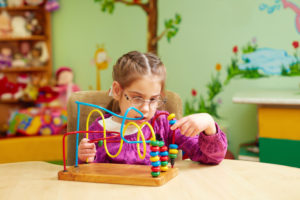What Toys to Give Children with Special Needs
 Caring for children with special needs can be quite a challenge especially for first-time parents or parents who are new in the care of special needs children. And since toys are the primary tools upon which children make sense of their world, these can play a very important role in the care and development of children with these conditions. However, because of the great number of pediatric conditions that require special care and the equally great number of categories of toys, it is important for us to identify what toys to give to children with special needs. Here are some of them:
Caring for children with special needs can be quite a challenge especially for first-time parents or parents who are new in the care of special needs children. And since toys are the primary tools upon which children make sense of their world, these can play a very important role in the care and development of children with these conditions. However, because of the great number of pediatric conditions that require special care and the equally great number of categories of toys, it is important for us to identify what toys to give to children with special needs. Here are some of them:
Puzzle Toys & More
One of the most effective toys for many children who have special needs, especially those with delays in fine motor development as well as cognitive delays, are puzzles or puzzle toys. Working with a variety of puzzle pieces help kids train the muscles of their hands in picking, pinching, and even grasping objects. Puzzles also work to help improve the cognitive development of children as they learn to make choices in the puzzle pieces that will fit a particular slot. This also helps build their convergent thinking abilities, helping them learn how to look for a specific answer for a specific problem. Excellent examples of these toys are the following:
- Pegs or knobs or other puzzles with pieces that don’t fit into other pieces
- Jigsaw puzzles (Check out product ideas from My Kid Needs That)
- Sliding puzzles
Sensory Toys
Children with sensory processing disorders such as those who may have autism spectrum disorders can benefit a lot from sensory toys. Many of these kids become under-responsive to even the most common sensations in their surroundings. They may even show lack of coordination, may bump into things, or may have difficulty engaging in conversations or even play. Sensory toys help by providing these kids with the right kinds of sensory stimulation that they desire. It also helps focus their attention while calming them down. Examples of these types of toys include the following:
- Kiddie trampolines
- Toys that light up
- Water tables
- Finger painting toys
- Sand tables
- Marble Run Toy
Fidget Toys
Kids who are diagnosed with Attention Deficit Hyperactivity Disorder often present with hyperactivity, restlessness, impulsivity, or even inattention, or a mixture of these. Fidget toys can help by promoting concentration and focus, providing tactile awareness, helping with self-regulation, and decreasing stress levels. When it comes to stress reduction, fidget toys effectively use up the negative energies associated with anxiety and stress, resulting in a calmer and more relaxed mind. There are many types of these kinds of toys. However, in order for a fidget toy to be effective, it must allow children to experience different textures or even to keep those little fingers busy. Great examples of such toys include:
- Play dough
- Wiggle cushions
- Squeeze balls or stress balls
- Toys that make noise such as clackers or hand clappers
Cause and Effect Toys
Children who may have difficulty relating to and communicating with others are often diagnosed with autism. Studies show that children with autism can benefit immensely from cause and effect toys because these playthings give them the opportunity for performing repetitive sequences, sensory exploration, and hand-eye coordination. These types of toys promote the continuing development of children’s grasping skills as well as their visual-motor skills. By causing a certain reaction, kids with autism can begin to associate the resulting “effect” to the action or “cause”. For example, if they press a button, music will be played or light will flash. Some of the more effective cause and effect toys for children with special needs include:
- Sorting toys which can include shapes, sizes, and colors
- Water squirters
- Pop-up toys
- Toys that make a variety of noises or sounds when squeezed
- Light-up toys
- Toy Lawn Mower
Oral Stimulators
Kids who may have problems controlling their chewing behavior or are diagnosed with oral motor difficulties can benefit from oral stimulators which are designed to engage their mouths. Examples of these include:
- Bubble toys
- Chewable jewelries
- Bird whistle toys
- Chewy tubes
Children with special needs require the correct types of toys to help them achieve their full growth and development potential. By carefully understanding the special needs of your children, you can effectively choose the right toys for them. Additionally, you may want to consider choosing a sensory blanket as well, which may ease the symptoms of ADHD and other disorders due to its calming effect. This is what really makes caring for kids with special needs truly special.
Tags: ADHD, special needs kids















